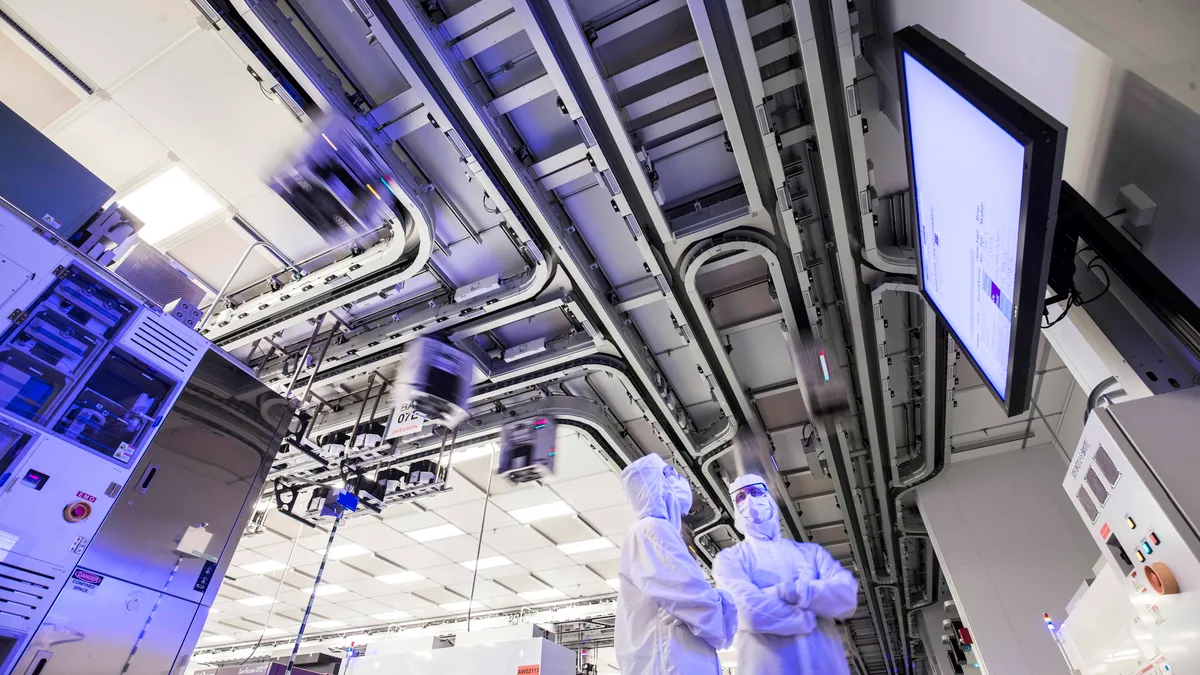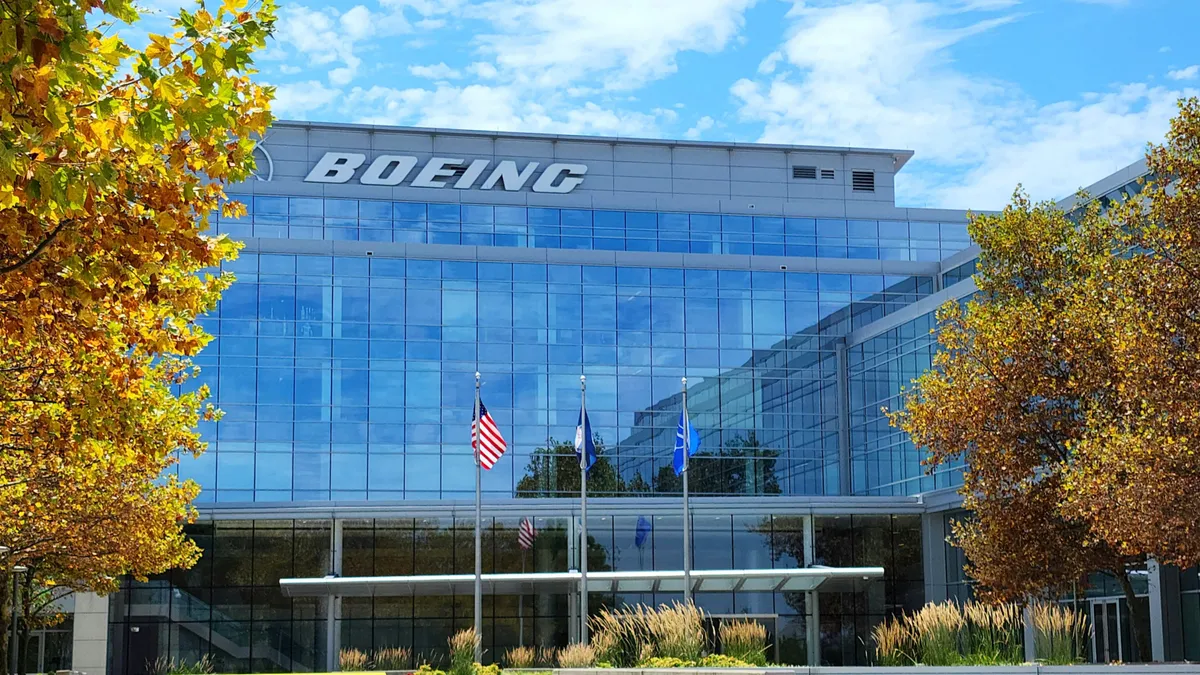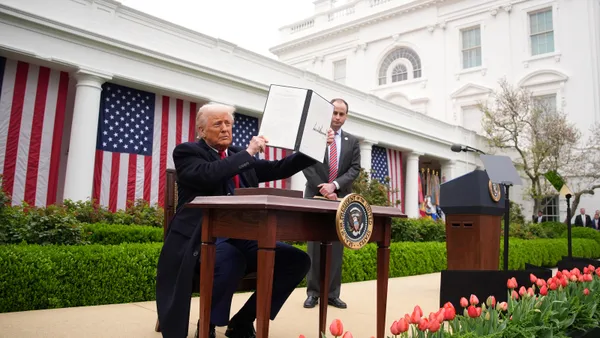Chipmakers GlobalFoundries and Analog Devices are pushing to further diversify their supply chains ahead of the Trump administration's wide-ranging tariff policies.
The comments came days before President Donald Trump announced plans to put a 25% tariff on semiconductor imports as soon as April 12, adding further potential upheaval to the global semiconductor supply chain.
During GlobalFoundries' Q4 earnings call earlier this month, President and CEO Thomas Caulfield said that as customers weigh the impact of tariffs, diversification is key to limiting their exposure.
"We need to have the ability to source from different regions," Caulfield said. "And I think it's just raising the height of importance of diversification and supply chain with customers."
The CEO said that customers are asking for multi-sourced product options from across geographic regions, leveraging the chipmaker's broad manufacturing network across the U.S., Europe and Asia.
GlobalFoundries is increasingly looking to its Malta, New York, and Burlington, Vermont, facilities to supply U.S.-based customers, especially automakers.
"Especially the American automotive players are more focused on where the silicon is coming from," Chief Business Officer Niels Anderskouv said. "So, what we are doing from a strategic standpoint is we are positioning some of our most differentiated and advanced technologies into Malta and Burlington for that reason."
Analog Devices Chairman and CEO Vincent Roche said on the company's Q4 earnings call that the chipmaker is leveraging its hybrid manufacturing model to lean into diversification, including across its customers, products and geographies. By early 2027, Analog plans to have secured dual product sourcing across its entire supply chain.
"Diversity gives us optionality, but it also gives us resiliency," Roche said. "We've invested in our fabs internally in America and Europe. And we've worked with our partners as well to get at least two geographical sources for the products that we procure from our partners externally."
Like many manufacturers, chipmakers were already shoring up plans to mitigate possible fallout from Trump's previously announced plans for tariffs on Mexico, Canada and China, as well as the president's call for reciprocal tariffs, before the latest tariff pledge.
Other chipmakers, such as Onsemi, said they were still in the monitoring phase for the impact of tariffs, clouding their ability to make forecasts about seasonality in Q2 2025.
"Entering Q1, we expect persisting volatility due to the geopolitical uncertainty across all geographies as our customers assess their manufacturing footprints and the impact of tariffs," Onsemi President and CEO Hassane El-Khoury said during the company's Q4 earnings call.
While the U.S. has been making strides in building out its domestic semiconductor supply chain, much of the industry remains highly globalized and vulnerable to tariffs. In 2023, the country imported $25.4 billion worth of semiconductor devices, compared to just $3.47 billion in exports, according to consulting company the Observatory of Economic Complexity.












